Widespread adoption of GPS guidance for field operations occurred 10 to 15 years ago. Just as people under the age of 35 don’t remember a world without internet, farming without guidance systems now seems unimaginable. Unfortunately, guidance systems remain costly and often frustrating. Growing up in a region where discers were the primary seeding implement, […] Read more
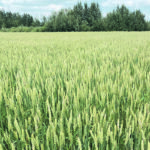
Survey asks about farming’s future
What will prairie grain farms look like in the future? According to a recent survey conducted for the Western Grains Research Foundation, they’ll be larger and more dependent on autonomous machinery, artificial intelligence and data collection. In addition, they could also be subject to greater regulation when it comes to the use of pesticides and […] Read more
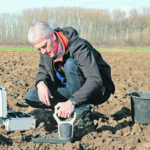
Putting it all on the bench and in the field
Chemical, biological and physical soil properties vary considerably in space and time, and they need to be closely monitored to have the best chance at a good fertilizer response. So it’s not surprising that so much energy is devoted to developing new products and techniques that assist fertility programs, considering the eye-popping amount of money […] Read more
Cargill to buy Precision Ag
Cargill will purchase Precision Ag, a Saskatchewan crop inputs retailer. The business will continue to operate as Precision Ag, based in Griffin, and there will be no changes for its 23 employees or at its four locations in Griffin, Odessa, Carlyle and Carnduff. The company’s leadership team will also stay in current roles for the […] Read more

Engineering biology ‘transforms’ research
The Global Institute for Food Security at the U of S has high hopes for its Engineering Biology Agri-food Innovation Centre
The new Engineering Biology Agri-food Innovation Centre plans to shine its research light on helping to sequester carbon, designing more nutritious and resilient crop varieties, and developing new food ingredients. The new centre formed within the Global Institute for Food Security (GIFS) at the University of Saskatchewan is the first in Canada. It is designed […] Read more
Farm groups form carbon coalition
Proposed federal carbon tax hikes seen as a threat to farmers have prompted the formation of a national coalition to oppose the carbon plan. “I think it raised a lot of concerns for how farmers would disproportionately be impacted because of their reliance on fuel and on natural gas to feed Canada and the world,” […] Read more
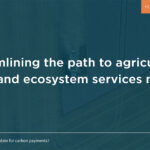
Co-op creates grower’s carbon compensation plan
Land O’Lakes aspires to bring soil sequestration program to Canada, initially rolls it out in the U.S.
One of America’s largest farmer-owned co-operatives launched a new carbon sequestration program that enables farmers to generate and sell carbon credits to private sector buyers. Land O’Lakes sustainability business, Truterra, launched its TruCarbon program that will pay farmers US$20 per ton to sequester carbon in their soils, beginning this summer. Jason Weller is the vice-president […] Read more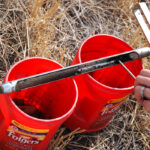
Invest in consistency, curiosity and conscious analysis
Records indicate the first analytical soil sample was taken in 1914 in Ontario and the practice came to the Prairies in the 1950s and 1960s. Based on current soil sampling frequency data and anecdotal evidence, all farmers are not convinced it is a practice worth the annual expense. A few weeks ago, I conducted a […] Read more

Money, time best help for ag innovation
Many American states and agricultural universities have ag tech accelerators. Definitions vary, but an accelerator is an organization that helps start-up companies and entrepreneurs get their technology to market. It usually features a mentorship program, where experienced business leaders assist a young entrepreneur. Some accelerators provide funding for the start-up. Related stories in this special […] Read more
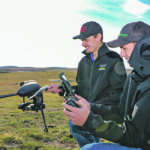
Alta. college focuses on new ag technology
Lakeland College hopes its bachelor of agriculture technology program will prepare professionals for a high-tech future
A new bachelor degree program said to be the first of its kind in Canada aims to prepare students for emerging technological changes. Although farmers have always sought to be more efficient and productive, the current rate of change has been “absolutely remarkable,” said Michael Crowe, vice-president of academic and research at Lakeland College in […] Read more





